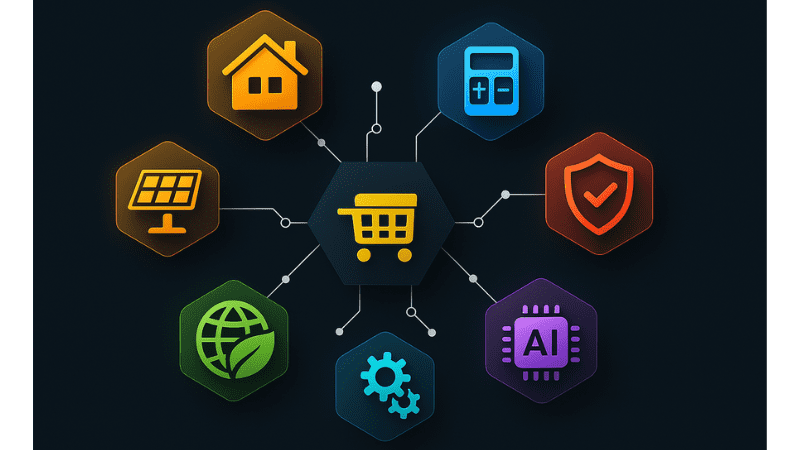For decades, property data was the domain of real estate professionals, including appraisers, brokers, and developers. But that limited scope no longer applies.
Today, industries far beyond real estate are waking up to a powerful truth: location-based insight isn’t just valuable—it’s foundational. Whether you’re underwriting insurance, training AI models, assessing ESG risks, or optimizing customer experiences, property data has become a strategic asset.
The question is no longer if your organization needs a property data strategy. It’s how fast you can build one.
From Niche to Necessary
In the past, property data lived in industry silos: mortgage lending, title insurance, and local government records. However, by 2025, nearly every company will touch “place” in some form.
Retailers want to know where their customers live, work, and shop.
Insurers assess parcel-level risks in real time.
Fintech startups embed home equity data and ownership verification into their apps.
Climate tech firms track flooding, heat islands, and energy usage—block by block.
Property data has gone mainstream—and organizations that fail to integrate it are flying blind.
The Problem with Legacy Systems
Much of today’s property data remains locked behind paywalls, PDFs, or patchy county portals. Even national providers often deliver outdated, inconsistent records.
The result? Delayed decisions. Missed signals. Avoidable risk.
Modern businesses need real-time, structured data via API, integrated directly into their tools—without the red tape.
5 Cross-Industry Use Cases You Can’t Ignore
Insurance
Climate change has redefined risk. With parcel-level data, insurers can model the likelihood of wildfires, floods, and other hazards before binding coverage—leading to more accurate pricing and fewer unexpected losses.Fintech
Lenders and neobanks can pre-fill applications with verified property data, assess home equity in real time, and flag ownership inconsistencies—all of which help speed up approvals, reduce fraud, and personalize offers.Retail & CPG
Brands can utilize property data to assess store placement, analyze consumer density, and comprehend neighborhood dynamics—from income and zoning to foot traffic and nearby competition.Climate & ESG
Companies now face new mandates to disclose climate and environmental risks. Property data helps map zoning overlays, identify heat-prone zones, and track emissions at the building level for compliance and reporting.AI & Machine Learning
Property attributes—such as square footage, occupancy status, zoning, and lot type—can serve as high-signal features in models predicting consumer behavior, pricing trends, or environmental impact.
If your organization builds, buys, finances, regulates, or sells anything connected to the built world—you’re already in the property data business.
What a Modern Strategy Looks Like
It’s not about collecting more data—it’s about activating the right data, in the right context, for the right teams. That means:
• API-first architecture that scales
• Coverage across ownership, permits, zoning, environmental indicators, and more
• Seamless integration with dashboards, workflows, and models
• Transparent documentation and pricing to enable experimentation
This is infrastructure—not just information.
Built for What’s Next
Companies like RealEstateAPI are stepping in to modernize how organizations access and apply location intelligence. With nationwide coverage of over 150 million properties, API-first delivery, and access to zoning, valuations, permits, and ownership data, platforms like these are enabling faster, smarter decisions across sectors.
From fintech and insurance to solar and AI, RealEstateAPI is helping teams turn static property records into real-time intelligence. In our recent interview with CEO Vince Harris, he discusses how the company is challenging legacy providers and making property data usable for both humans and AI tools alike.
Whether you’re an early-stage team or a global enterprise, the opportunity lies in building smarter systems around location—from the ground up.
If You Have Customers, You Have a Property Problem
Property data isn’t just about buildings or land. It’s about understanding how place intersects with people, risk, and opportunity.
The most forward-thinking companies treat location as context—and data as strategy.
It’s time to build your property data strategy.























